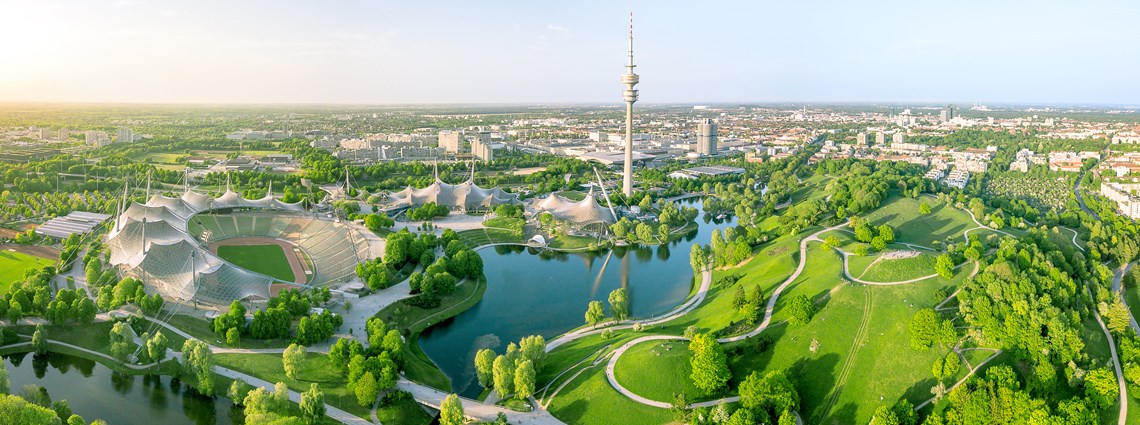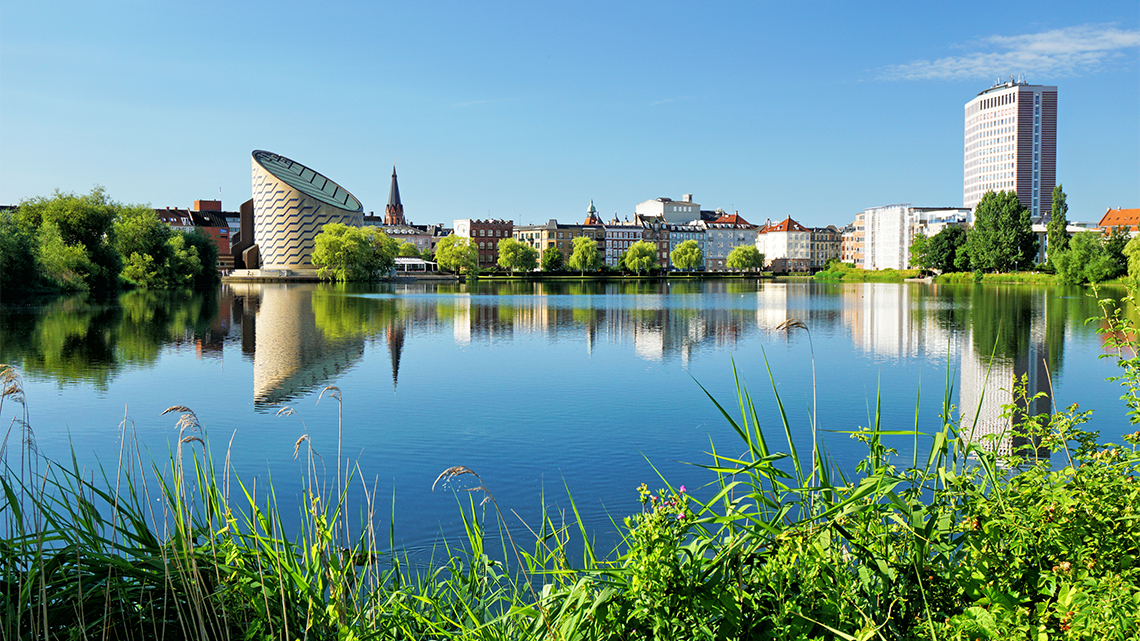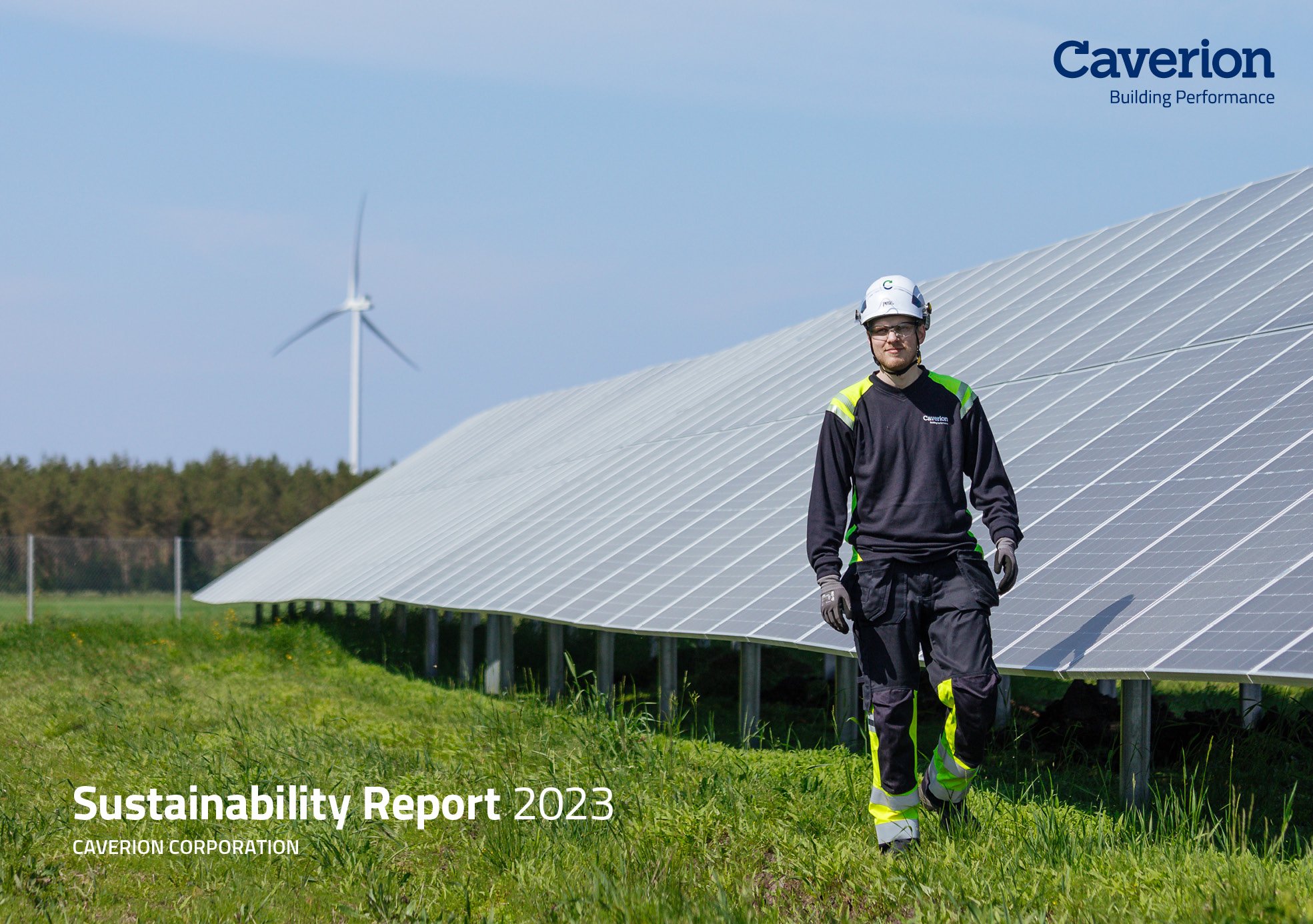Our footprint
We have detailed targets and plans to reduce our emissions and our carbon footprint. At the same
time, we work with our suppliers and customers to reduce emissions throughout our value chain.
Scope 1: Vehicle fleet
Our transition plan to decrease GHG emissions is based on the action plan approved in 2023. For Scope 1, we focus on the electrification of business vehicles and service vehicles. In addition, we plan to purchase low-emission renewable diesel for the remaining diesel-powered service vehicles. By optimising the existing number of about 4,300 service vans and 1,600 passenger cars, increasing our remote services, optimising routes and more economical way of driving, it is possible to achieve significant financial and environmental savings.
In 2023, Scope 1 emissions were 0.6% of our total emissions. Service cars accounted for 19,177 tCO₂ (i.e., 97% of Scope 1 emissions). In 2023, we continued to electrify our vehicle fleet in all our operating countries. Particularly good development was achieved in the electrification of business vehicles. By 2025, our aim is that more than half of our service van fleet is electric.
Scope 2: Facilities
In our transition plan, the reduction of GHG emissions in facilities (Scope 2) is based on switching to carbon dioxide-free electricity and district heating in all rented premises and buildings where it is possible. In addition, we constantly strive to optimise the number of properties, improve the energy efficiency and utilisation rate of facilities, and increase the amount of on-site energy production, if it is the most reasonable option.
Our operations are not energy intensive. In 2023, Scope 2 emissions derived mainly from our leased office buildings, amounting to 13,291 tCO₂ or 0.4% of our total emissions. In 2023, the most significant GHG emission reduction action in all divisions was switching to carbon dioxide-free electricity (including renewable energy sources and nuclear power).
Scope 3
In 2023, we completed our Scope 3 GHG emission inventory calculations. The vast majority, i.e. 99% (3,215,683 tCO₂) of our total emissions are based on our indirect emissions in the value chain. The main GHG emission categories are:
- category 1: purchased Goods and Services (in total 12.6% of our total emissions, i.e., 408,847 tCO₂) and
- category 11: use of Sold Products (in total 85.2% of our total emissions, i.e., 2,766,414 tCO₂).
Additional Scope 3 GHG emissions categories relevant to our business are category 3: fuel and energy related activities (0.1% of our total emissions), category 4: upstream transportation and distribution (0.1%), category 5: waste generated in operations (0.0%), category 6: business travel (0.3%), category 7: employee commuting (0.7%), and category 12: end-of-life treatment of sold products (0.1%). These categories, which consist of numerous different business activities, account for 1.2% of Caverion's total emissions. Consequently, our transition plan has only been created for our main categories 1 and 11, which we believe is where we have the greatest opportunity to reduce our Scope 3 emissions.
Total greenhouse gas emissions in 2023:
Our handprint
As sustainability needs are growing rapidly, we are well positioned to help provide a sustainable and digital future for our customers and the whole society. We offer expert guidance throughout the entire lifecycle of buildings, infrastructure and industrial sites and processes. Our focus is on delivering long-lasting benefits by bringing together people, technology, and data.
Our growth in sustainable smart solutions is supported by the joint need to fight climate change and the other megatrends, such as the increasing digitalisation and urbanisation. We are continuously improving and expanding our smart technology and digital solution offering to increase customer value and our carbon handprint.
We target a positive carbon handprint five times greater than our carbon footprint (Scope 1-2) by 2025 and 10 times greater by 2030.

With our focus on lifecycle management and smart and sustainable solutions and services, Caverion helps customers achieve substantial energy savings and thus mitigate climate change.
An environmentally compliant supply chain and partners are essential for Caverion. In 2023, 92% of Caverion’s business was ISO 14001 environmentally certified.
ISO 14001 certified business
Environmental risks
Caverion’s own operations are not extensively energy intensive and therefore risks related to growing energy consumption are moderate. Waste generated and chemicals used in Caverion’s operations are recycled and disposed according to regulatory requirements. For most part, the environmental impact of Caverion’s operations relates to local noise or dust. Caverion continuously follows legislation changes on environment in the EU area and in the other operating countries. Caverion is starting a more in-depth analysis on its impacts on global biodiversity.
Sustainable and smart offering
As sustainability needs are growing rapidly, Caverion is well positioned to enable a sustainable, environmentally friendly, and digital future for our customers and the whole society. The focus is on delivering long-lasting benefits by combining people, technology and data. Caverion' possesses expert guidance throughout the entire lifecycle of buildings, infrastructure and industrial sites and processes. Caverion's holds expert guidance throughout the entire lifecycle of buildings, infrastructure and industrial sites and processes.

